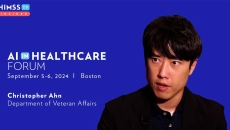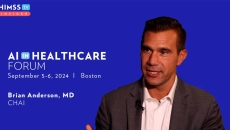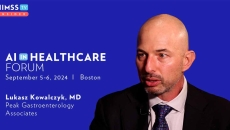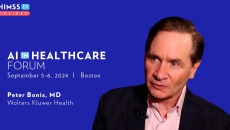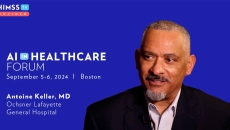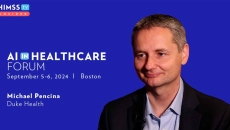AI
Christopher Ahn, biomedical engineer supervisor at the U.S. Department of Veteran Affairs, says that for clinicians who use medical devices an AI chatbot could answer questions and offer support, which is more immediate than filing a service ticket.
Dr. Brian Anderson, cofounder and CEO of CHAI, talks about assurance principles and overlaying an AI model's life cycle so that software developers and other stakeholders can consider best practices when deploying AI within healthcare workflows.
Dr. Lukasz Kowalczyk, a physician at Colorado-based Peak Gastroenterology Associates, discusses the need for a multidisciplinary strategy for AI adoption - and building a clinically valuable algorithm while ensuring ethical use.
Peter Bonis, chief medical officer of Wolters Kluwer Health, discusses health provider and consumer skepticism around AI, supporting trust in AI, the adoption cycle of the technology, and the importance of understanding its limitations.
Also, See-Mode has received the first US FDA approval for a thyroid ultrasound analysis AI solution.
Also, Japan has approved iRhythm's AI-based continuous ECG monitoring system.
Cardiothoracic surgeon at Ochsner Lafayette Hospital Dr. Antoine Keller talks about using technology and artificial intelligence to promote access and help the underserved, and details a project that utilizes a portable diagnostic tool.
AI solutions should be safe, fair and adhere to privacy and security, says Dr. Sonya Makhni, medical director at Mayo Clinic Platform. Adoption is only realistic if end users can trust AI performance, so developers need to be transparent.
The General Catalyst Institute will work with governments worldwide to back technologies that shape global resilience and public policy.
Michael Pencina, chief data scientist at Duke AI Health, discusses strategic and intentional AI implementation within healthcare systems to ensure correct AI model use, healthcare provider utilization and objective evaluation of AI offerings.
